Guinea-Bissau
Guinea-Bissau President Umaro Sissoco Embalo decided to dissolve the opposition-dominated Parliament on Monday, three days after armed clashes that he describes as an "attempted coup d'état" and which plunged this small African country the West in yet another crisis.
“The date of the next legislative elections will be set at the appropriate time, in accordance with the provisions (...) of the Constitution,” says a presidential decree communicated to the press.
President Embalo invokes the "complicity" between the National Guard, the body involved in the clashes with the Presidential Guard Thursday evening and Friday, and "certain political interests within the state apparatus itself".
"After this attempted coup d'état led by the National Guard and in the face of strong evidence of the existence of political complicity, the normal functioning of the institutions of the Republic has become impossible. These facts confirm the existence of a serious crisis politics ,” he said.
Guinea -Bissau is experiencing chronic political instability and has experienced a string of coups since its independence from Portugal in 1974, the last in February 2022.
Elements of the National Guard burst into the premises of the judicial police on Thursday evening to extract the Minister of Economy and Finance, Souleiman Seidi , and the Secretary of State for the Public Treasury, Antonio Monteiro who were being questioned there. . Then they took shelter in a military camp in the capital Bissau, and resisted with arms until Friday morning.
The clashes left at least two dead. They are seen as a new illustration of the deep political fractures at the heart of the state between the presidency and the government, which also run through the security forces.
The National Guard essentially reports to the Ministry of the Interior, and therefore to the government, itself an emanation of Parliament dominated by the opposition. The prosecution, which ordered the arrest of the two members of the government, responded to the presidency.
The legislative elections of June 2023 gave an absolute majority to a coalition formed around the historic African Party for the Independence of Guinea and Cape Verde (PAIGC), the president's old adversary. Mr. Embalo, who has led the country since 2020, found himself condemned to cohabitation with the government.
In his decree, the president denounces "the passivity of the government" in the face of events. He assures that the aim of the National Guard, in seeking to release the two members of the government, was to obstruct the investigations carried out by the prosecution.
The two government members were taken into custody on Thursday and questioned about a withdrawal of ten million dollars from state coffers. The matter had previously been discussed in Parliament.
President Embalo accuses Parliament of having "preferred to defend members of the executive suspected of acts of corruption seriously harming the higher interests of the State", rather than "fighting for the rigorous application of the law ( ...) and to exercise its role of controlling the actions of the government.
Mr. Embalo warned on Saturday that the unrest would have “serious consequences” .



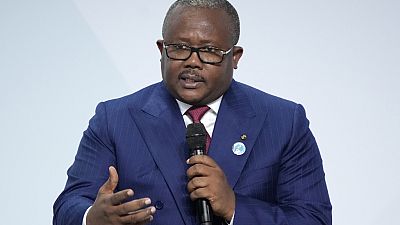

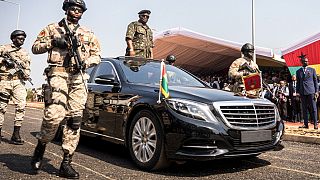
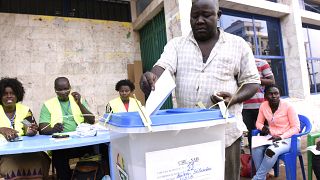
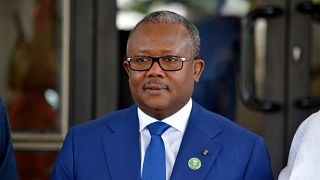

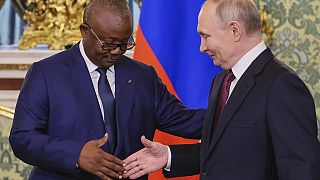



Go to video
Cameroon's presidential election gathers momemtum as candidates file for the October vote
01:13
Voter turnout in Togo's municipal elections overall low
01:02
Bill granting head of Mali's junta, Gen. Assimi Goita, five more years in power signed into law
01:01
Chad’s former Prime Minister appeals to Macron after two months in detention
00:44
Mali junta chief extends army rule by five years, rules out elections
01:09
Guinea presents draft for new constitution, referendum set for September